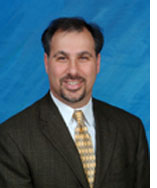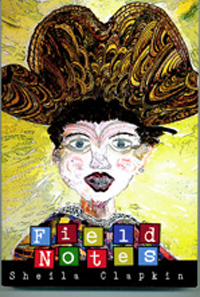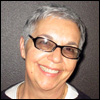| |
|
| Alaska |
Barack Obama |
Mitt Romney |
| Alabama |
Barack Obama |
Mike Huckabee |
| Arkansas |
Hillary Clinton |
Mike Huckabee |
| Arizona |
Hillary Clinton |
John McCain |
| California |
Hillary Clinton |
John McCain |
| Colorado |
Barack Obama |
Mitt Romney |
| Connecticut |
Barack Obama |
John McCain |
| Delaware |
Barack Obama |
John McCain |
| Georgia |
Barack Obama |
Mike Huckabee |
| Idaho |
Barack Obama |
May 27 Caucus |
| Illinois |
Barack Obama |
John McCain |
| Kansas |
Barack Obama |
Feb. 9 Caucus |
| Massachusetts |
Hillary Clinton |
Mitt Romney |
| Minnesota |
Barack Obama |
Mitt Romney |
| Missouri |
Barack Obama |
John McCain |
| Montana |
June 3 primary |
Mitt Romney |
| New Jersey |
Hillary Clinton |
John McCain |
| New Mexico |
pending |
June 3 primary |
| New York |
Hillary Clinton |
John McCain |
| North Dakota |
Barack Obama |
Mitt Romney |
| Oklahoma |
Hillary Clinton |
John McCain |
| Tennessee |
Hillary Clinton |
Mike Huckabee |
| Utah |
Barack Obama |
Mitt Romney |
| West Virginia |
May 13 primary |
Mike Huckabee |
Why genealogy is important for children
By Alan Rusonik
 SAN DIEGO—OK. I have to confess. I am closet genealogist. I try to hide it, but every now and then my obsession gets the better of me. It usually reappears during a family simcha, or, unfortunately, at the passing of a loved one. SAN DIEGO—OK. I have to confess. I am closet genealogist. I try to hide it, but every now and then my obsession gets the better of me. It usually reappears during a family simcha, or, unfortunately, at the passing of a loved one.
Jewish genealogy is as old as Judaism itself. How many chapters of Torah refer to “these are the generations of (Eleh Toldot)….” In Deuteronomy, Moses teaches us “Remember the days of old, consider the years of many generations!”
As adults, we understand plenty of reasons why we should be curious about family history, but what about our students? Why should we teach children about genealogy?
Let me give you a few reasons and suggestions.
1. It Provides Children with a Connection - Every day in the news we hear about children gone astray because they feel disconnected to their family and the world. As educators we know that families are endlessly fascinating. By filling in the blanks on the charts, our students will discover that while all families are unique, researching families is a like a personal detective story. Children may even discover characteristics about themselves that they have in common with an earlier ancestor. L’dor VaDor, Judaism provides us with an imperative to connect one generation to another.
2. It Passes on a Sense of History - Children need to have a sense of history. It's part of understanding who they are, as individuals, as Americans, and as Jews. This includes their own personal history as well as how world history influenced family decisions.
3. It Gives Them a Context in Which to Understand the World - There are common threads that reappear in every generation besides birth, marriage, and death. Ask any student how many times they've moved in their lifetime and what the readjustment was like and you have a context for a discussion about immigration. War is another current that runs throughout family history. Ask your students to find out what was their family's experience during wartime, the current one and past ones? Older students can interview people, research documents and write about their findings. By teaching kids family history one step at a time, you have a chance of giving them skills to understand both Jewish and general history, geography, politics and so much more!
4. It is an Intergenerational Activity - Once you get a child curious about their family history and keep them interested they will be inclined to do two things: Keep family records and work with older family members to find out about their history. It is often difficult to “bridge the generation gap.” Genealogy is one way to overcome that schism. I was fortunate to have inherited countless documents which helped me piece together my family history. I also loved to listen to stories about the “old country.” Today, fewer grandparents and even great-grandparents experienced “the old country” and with the breakup of the nuclear family, we have to work harder to achieve this end. I can think of no greater lesson for our children to learn.
With so much to teach and with so little time to teach it, Jewish genealogy often gets the short end of the stick. While admittedly I am biased, perhaps one of my ideas or suggestions will resonate and you will consider it as part of your Jewish education menu!
.

 . .
PEOPLE OF THE BOOKS
Field Notes: A 17-Mile Drive kind of novel
By Donald H. Harrison
 SAN DIEGO—If you are the kind of person who, when visiting the Monterey Peninsula, prefers to go by the 17-mile drive through the Pebble Beach area to Pacific Grove, then Field Notes by Sheila Clapkin is the kind of novel for you. It takes some twists and turns that other novelists might avoid, but in so doing it has the opportunity to offer some beautifully descriptive passages. SAN DIEGO—If you are the kind of person who, when visiting the Monterey Peninsula, prefers to go by the 17-mile drive through the Pebble Beach area to Pacific Grove, then Field Notes by Sheila Clapkin is the kind of novel for you. It takes some twists and turns that other novelists might avoid, but in so doing it has the opportunity to offer some beautifully descriptive passages.
Although it is called a novel, many parts of Field Notes are clearly autobiographical. Evidence of this can be found in a "Jewish memories" article that Clapkin, a retired teacher living in Tarzana, recently wrote for San Diego Jewish World in which she described an arbitrary decision made by the rabbi at her temple to delay the confirmation for which she already had studied. The same thing happens to Sunshine Joy Epstein, the fictional narrator of the novel. Nevertheless, we cannot assume that the book is a transcription of Clapkin's life, if for no other reason than Epstein dies in the end and Clapkin clearly is still with us.
 Field Notes relates in retrospect the love affair between Sunshine and Fields, who grew up as neighbors in the Haight district of San Francisco with upper story bedroom windows facing each other. In a reversal of what their names suggest, Fields makes Sunshine bloom. Although he fathers a child with another woman, who is both prettier and smarter than she, and she ends up marrying someone else, her torch for Fields burns even after his death. The story, then, is a series of recollections about their times together. She also becomes enmeshed in the lives of his daughter and his grandchildren. Field Notes relates in retrospect the love affair between Sunshine and Fields, who grew up as neighbors in the Haight district of San Francisco with upper story bedroom windows facing each other. In a reversal of what their names suggest, Fields makes Sunshine bloom. Although he fathers a child with another woman, who is both prettier and smarter than she, and she ends up marrying someone else, her torch for Fields burns even after his death. The story, then, is a series of recollections about their times together. She also becomes enmeshed in the lives of his daughter and his grandchildren.
Sunshine is Jewish; Fields is Catholic—although we understand that Fields never has been made aware of this fact. Sunshine recalls that Fields' mother once asked her mother to look at some "secret things in an old richly carved wooden box.
"She said they were things my mother would understand... My mother, a small woman with bowed legs and a deep widow's peak, always ready with an open smile, went over to Mrs. Fields' home the next day and opened the box of secret things. With her head bent into the box, he was brought into this secret world that was not a secret to her.
"She was overwhelmed, but calmed her racing heart and caught her breath before she explained that the two brass candles must have been from an older member of his family. My mother explained about the lighting of the Friday night candles ushering in the beauty of the Sabbath. She explained about the plain but strong-looking menorah. Mrs. Fields had seen lit menorahs in the windows of some neighbors.
"The box also contained three prayer shawls, which my mother assumed belonged to members of Martin's (Fields' father) unknown family. There, covered in a soft doily, was another carved box housing several pieces of gold and diamond jewelry. One was a diamond-spattered Star of David on a chain that still sparkled after so many years hidden in the box, and the other a gold and diamond mezuzah worn, by the look of the chain it was linked to, around the neck of a man of distinction. More importantly, the bottom of the box housed a bundle of photos...."
After learning this information from her mother, Sunshine never felt it was her place to tell Fields. So it was that when her lover died in a violent accident, it was without ever learning about his paternal heritage.
In another section of the book, Sunshine tells of moving to the San Fernando Valley in 1969. "I felt it was my duty to our children to sign up for a temple and become immersed in Jewish life. I was politely told that I would have to be put on a waiting list. I was stunned into writing my first letter to God. I said, 'God, this is news to me that I would have to be on a waiting list to be Jewish. Please, get me a deal.'
Fields not knowing of his Jewish parentage because it was not Sunshine's place; Sunshine not getting into a Jewish temple because it was not her time—A fine juxtaposition!


ARTS IN REVIEW
Works by Young Playwrights impressive
By Carol Davis
 SAN DIEGO—Plays by Young Writers, a festival of winning scripts from the 23rd annual California Playwrights Contest, is quite healthy and ready for the ’08 viewing. Founded by Deborah Salzer, and now under the co chairmanship of Maria Glanz and managing director Cecelia Kouma, the project features plays submitted in two categories by youngsters under the age of nineteen. Entries by playwrights under fourteen have been announced and can be seen now at the Lyceum Theatre downtown through Feb. 9. Some will be full productions while others will be readings. SAN DIEGO—Plays by Young Writers, a festival of winning scripts from the 23rd annual California Playwrights Contest, is quite healthy and ready for the ’08 viewing. Founded by Deborah Salzer, and now under the co chairmanship of Maria Glanz and managing director Cecelia Kouma, the project features plays submitted in two categories by youngsters under the age of nineteen. Entries by playwrights under fourteen have been announced and can be seen now at the Lyceum Theatre downtown through Feb. 9. Some will be full productions while others will be readings.
Of the four full productions to be seen, three of the winning writers are Jewish: William Alden, who is eighteen, from Santa Monica and a sophomore at Yale College; Niv Brook is seventeen and a freshman at Chapman College, and Justin Kuritzkes is seventeen and a senior at Harvard-Westlake School in Los Angeles. The fourth, and not to be overlooked, is James Monroe, a seventeen years old who resides in Escondido. He is senior at San Pasqual Academy, a residential school for foster teens. All four plays are different and worthy of a look-see.
Find You in the Forest is Alden’s entry about a woman in search of her mother who is suffering from Alzheimer’s disease. As the play opens, a young woman, Savannah (Jyl Haruye Kaneshiro), is riding a stationary bicycle through an imaginary forest looking for a way to get to her mother (Dana Hooley). In fact she is seeking some form of revelation, or acknowledgement from her. Each time (and there are three or four ‘treks through the forest’, if you will) Savannah reaches her mother and approaches her a new scenario or glimpse of recognition trickles through. Somehow in these discoveries we learn a little more of their relationship and of a tragedy that befell the family. Drawing from his own family experiences, Alden’s grandmother also suffered from dementia.
The play, directed by George Yé, is packed with so much mixed imagery. We see snippets of the mother as an artist whose paintings were destroyed in a fire along with all the household belongings. There is mention of a husband who is no longer in the picture. Finally, there is the young a woman who is longing for recognition and love from a mother whose physical presence still seems to be vibrant and alive, but whose mind is lost somewhere in the forest of her imagination.
Both director and actors find just the right amount of pathos to make the short scenes believable. Dana Hooley, long time actor on the San Diego scene is perfect as the Mother. The settings are the home and the landscape of the Mother’s mind. (Directors notes).
Mister Wade Is Dead, Nev Brook’s entry, is the only light-hearted play in this field of four.To be more accurate, it is a farce about a young married couple, Wade and Jessie (Anthony Misiano and Kristie Kahlweiss) who are two months behind in their rent payment. Their landlord, Mrs. Hoyle (Fred Harlow) is about to evict them.
Their neighbor Christos (Michael Fredrick) who is a pain-in-the-behind friend and way over the top in his acting, mooches off them for television viewing and any leftover food they may be eating at the time. He is instrumental in helping create the chaos this couple find themselves in when Wade, a discombobulated artist who can’t sell his paintings and Jessie, his wife, confess to him they are going to be evicted.
Jessie comes up with a plot to declare Wade dead and collect their insurance money. When they enlist the help of their friend, things go from bad to worse when one conglomerate offers to buy all of Wade’s works because a ‘dead painter is worth more dead than alive,’ while another commissions him to do more work. Such is the cynical world of art.
Liz Shipman directed with an eye for the off-the-wall fun look at a bad plan gone south but in this case less slapstick would have benefited the overall production. It’s all in the timing and with a little polishing this could hum. Writing farce is difficult enough, pulling it off calls for a more experienced cast. One standout, however, is Fred Harlow as the landlady dressed in drag. It almost makes up for some of the other lapses.
Justin Kuritzkes’ Hawaii involves two teenagers who find themselves in a serious predicament of falling for each other. The action takes place on a beachfront property on Hawaii where his mother and her father are about to be married. The relationship looks somewhat serious at the outset, but feelings of animosity and pettiness interrupt a would- be blooming romance when a barrage of attacks and counter attacks about each other’s respective parent erupts. And while some of the nastiness of the charges can be attributed to youth, there are enough to unmask some deep emotional scars.
Kuritzkes’ writing style, dialogue and command of the language are serious, droll and very mature for a young man of his age. It is engaging and he is able to strike at the core of this very sensitive subject in which so many young people find themselves today. Blended families are a thing of the present and need to be dealt with beyond just the parents. Both Jess Jacobs and Trevor Bowles, who play Nichole and Rob, the two protagonists thrown together by circumstances, are more than convincing. Jacobs, however needs to slow down a bit to let some of the subtleties of her predicament sink in. Christian Lebano directs this pretty sophisticated and insightful play with an eye on Kuritzkes’ wit and directness.
Step by Step could be a shadow representation of James Monroe’s life. The story takes place in a room of a group home where three young people, Guy, Davina and Jacques (Jake Ewald, Carolyn Ryan and Jordan Waters) share their feelings, fears and wants. They are guided by their counselor Chris (Elzie Billops) who sets the guidelines and boundaries to help them verbalize their needs. As the story of Guy unfolds, those of Monroe’s parallel the similarities of Guy’s life.
He is feeling unhappy on this particular day because it is his birth mother’s birthday and he does not know where she is. He wants to leave the home and look for her but Chris intervenes and does his homework tracking down her whereabouts. Guy reveals that his brother died of an overdose and he pledged not to follow that path. In the meantime the hormones start to flow when Davina comes on to the scene. Both boys have an eye for Davina, but Guy is the one who takes advantage of the opportunity to express his feelings to her.
Monroe’s writing is down to earth, truthful and emotionally charged. Director Esther Emery is skilled enough to bring some sound feelings from her young cast, but with a stronger and more articulate group this play can have far-reaching implications especially to young kids in foster and group homes. It is reported that Monroe ‘participated in three intensive residencies’ at school, taught by Playwrights Project, before gaining confidence to enter his work in the California Young Playwrights Project. We’re glad he did.
Taking the opportunity to use this particular outlet to air his emotions, Monroe has used the gift of writing he is so well endowed with to share his experiences with other youths as well as the community at large.
The Young Peoples Playwriting Project had 280 submissions presented to them this year. These four are the best new plays this year. Those presented by the 19 year old age group are given full productions while the 14 and younger are staged readings. The older playwrights spend time revising and reworking their original pieces. They are coached by writing professionals and later ‘by questions from the artists mounting the plays’. When all is said and done, the older playwrights enjoy an evening of having a live audience made up of friends, family and theatre aficionados appreciate their work.
Congratulations.
For more information go to playwrightsproject.org
See you at the theatre.

SAN DIEGO JEWISH WORLD THE WEEK IN REVIEW
Shoshana Bryen in Washington, D.C.: U.S. winning Al Qaeda's strong horse derby
Cynthia Citron in Los Angeles: The Monkey Jar riddle: who’s the monkey?
Donald H. Harrison in San Diego: Eternal Light documentary highlights one of the more meaningful television series
Ira Sharkansky in Jerusalem: Palestinians, Labor have penchant for self-inflicted political damage
Michael C. Abrams in San Diego: Mensch in full, Rabbi Leonard Rosenthal celebrated on 20th year at Tifereth Israel
Peter Garas in Canberra, Australia: 'Retarded' bombers story raises suspicions
Donald H. Harrison in San Diego: The likely GOP choice for vice president
Rabbi Leonard Rosenthal in San Diego: Torah portion on slavery quite troubling
Sheila Orysiek in San Diego: How far does community responsibility go?
David Strom in San Diego: Two brothers trying to survive together
Marsha Sutton in Del Mar, California: Mother’s death: A most Jewish moment
Shoshana Bryen in Washington, D.C.: What is justification for providing Syria with border surveillance computers?
Donald H. Harrison in San Diego: Life under Coney Island's roller coaster
subject of Jewish Film Festival short
Rabbi Baruch Lederman in San Diego: The sixth aliyah that the congregation—and its gabbai and visitor—would never forget
Rabbi Danny Schiff in Pittsburgh, Pennsylvania: Jews should support Ma legislation to ban body exhibits without consent of deceased
Ira Sharkansky in Jerusalem: Which zealots block Middle East peace?
Carol Davis in San Diego: Cygnet swings for—and reaches—Fences
Donald H. Harrison in San Diego: Commuter conversations—San Diego style
Isaac Yetiv in La Jolla, California: Gazans break out to Egypt may prove to be Israel's blessing in disguise
Judy Lash Balint in Jerusalem: Jerusalem's snow and political flurries
Peter Garas in Canberra, Australia: The labels that other people affix to us
Donald H. Harrison in Imperial Beach, California: Imperial Beach blue: 'John' was canceled
Sheila Orysiek in San Diego: How to order flowers for a bat mitzvah
Ira Sharkansky in Jerusalem: Winograd report providing grinding surface for many different political axes
Francine Ginsburg in La Jolla, California: Storyline, editing, teaching potential are all criteria for whether a film is chosen
Donald H. Harrison in National City, California: When civic and religious duties clash
Marissa Palin in La Jolla, California: Global warmth: is Bible really to blame?
Reut Schwartz-Hebron in San Diego: Economics account for some Hindu and Jewish ritual; Zen offers a way to adapt
< BACK TO TOP
Copyright 2008 - San Diego Jewish World, San Diego, California. All rights reserved.
|
|
